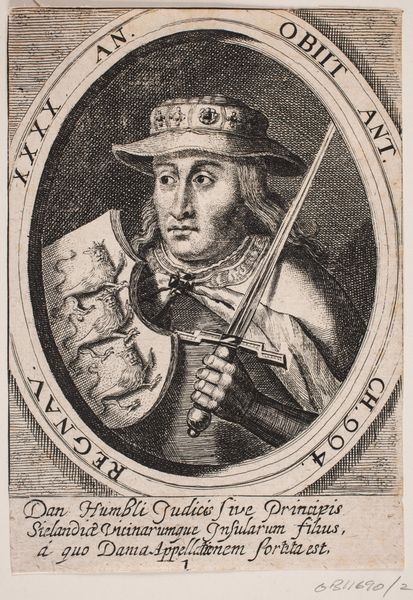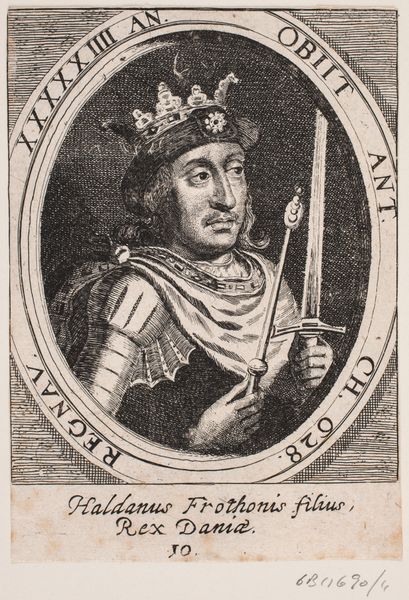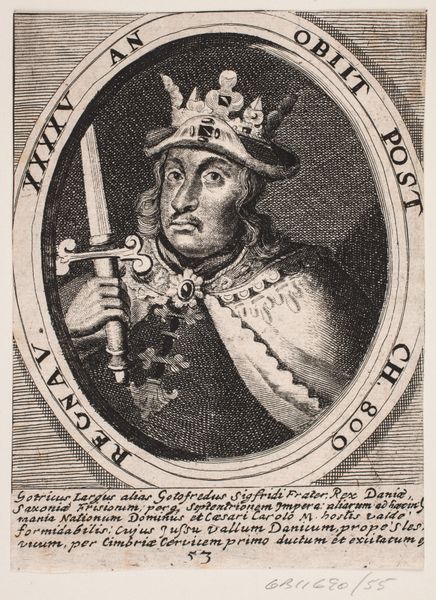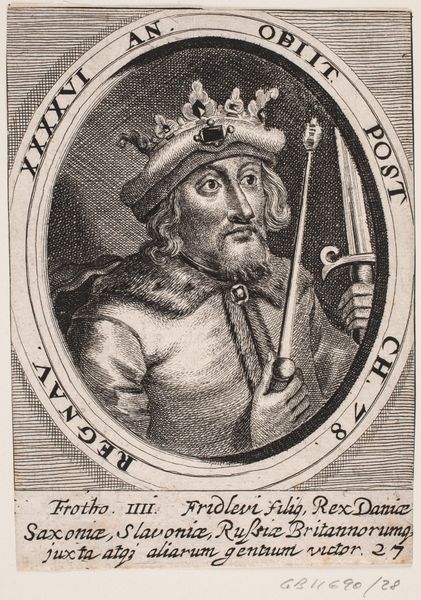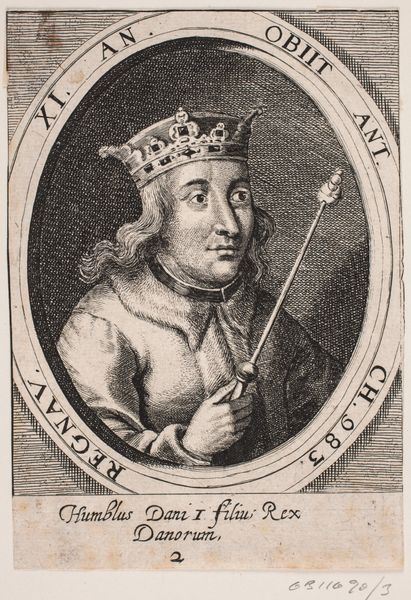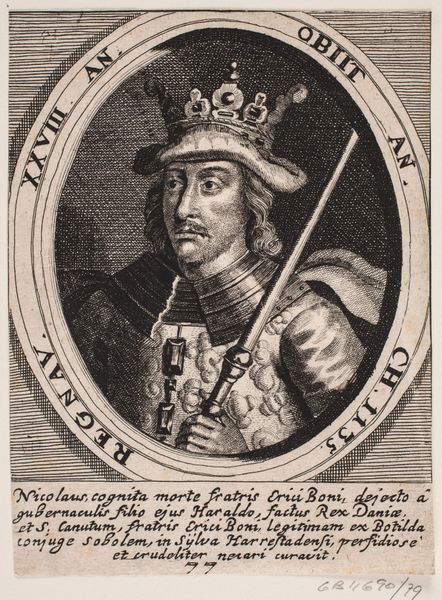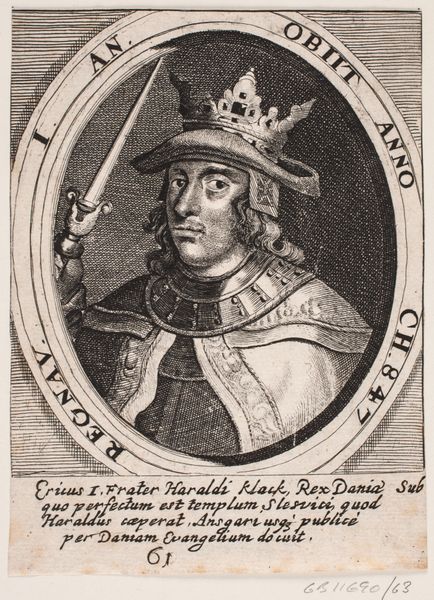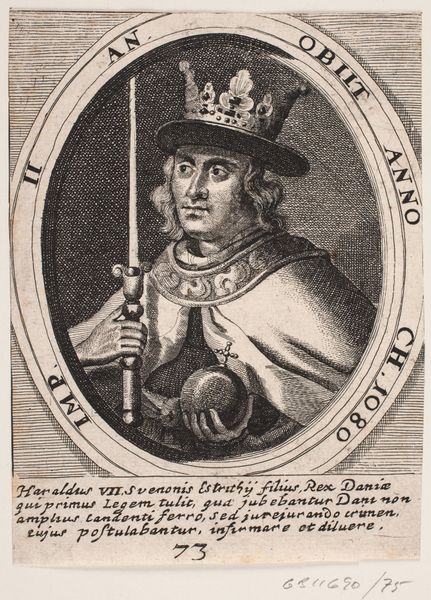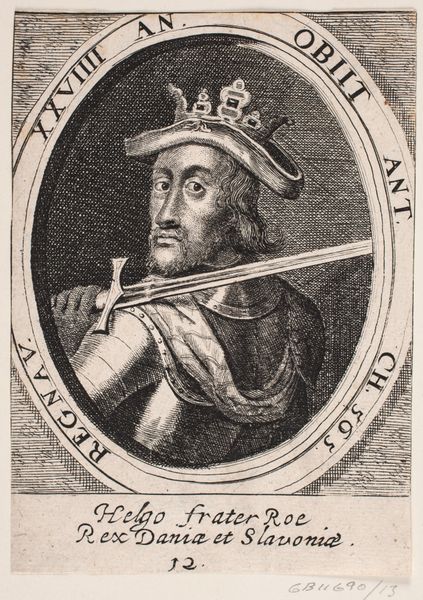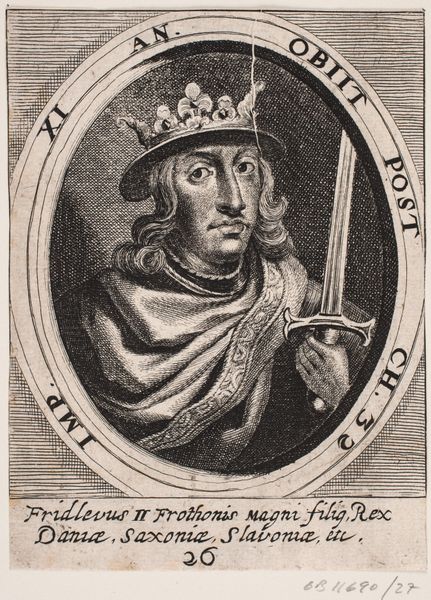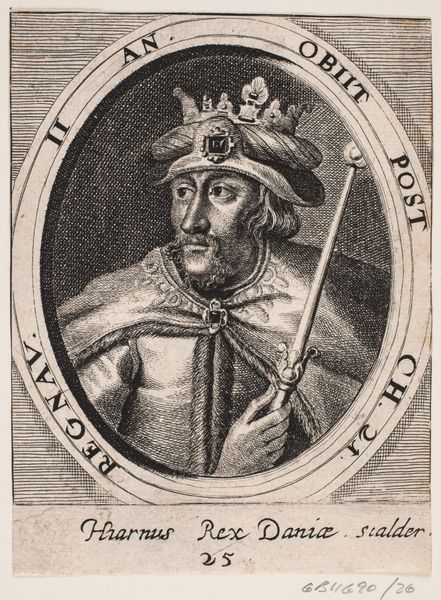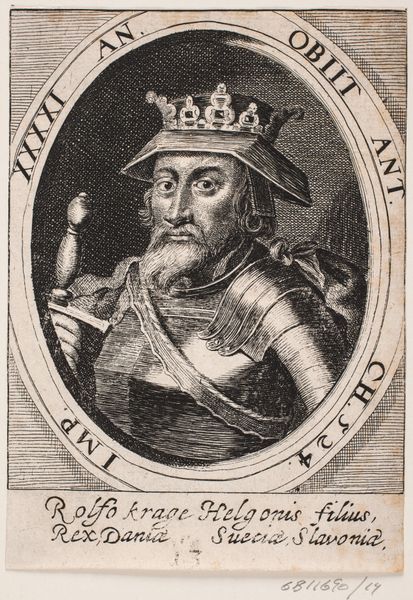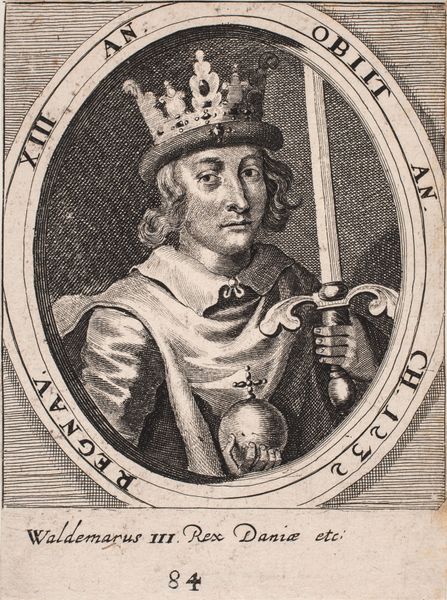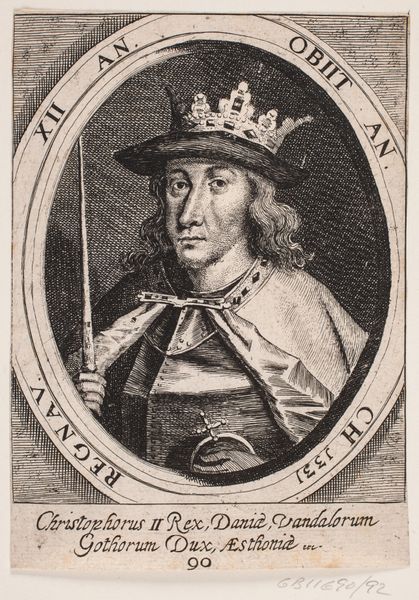
print, engraving
#
portrait
#
baroque
# print
#
caricature
#
portrait drawing
#
history-painting
#
engraving
Dimensions: 140 mm (height) x 100 mm (width) (bladmaal)
Editor: This is "Kong Skjold," from 1646, a print of some kind held at the Statens Museum for Kunst. It feels rather… austere, I think. There's an interesting emphasis on line. What do you see in terms of its production? Curator: The engraving itself is paramount. Look at the precise labour required to create those fine lines, the sheer mechanical skill involved in replicating this image for wider consumption. We see a mass production of sorts, transforming the portrait into a commodity, less about individual likeness and more about propagating a certain idea. How does that impact your understanding of portraiture? Editor: So, it's less about the individual "Kong Skjold" and more about what he *represents* and how that's communicated widely? Does the material then dictate the meaning more than the subject? Curator: Precisely! The printmaking process democratizes the image. It's about the ability to disseminate power and authority on a scale never before imagined, through relatively inexpensive materials and techniques. Consider the socio-political context: who had access to these images? What was the message intended for them, versus, say, a hand-painted portrait only the wealthy could afford? Editor: So, this isn’t just an image; it’s evidence of evolving means of production impacting society? Curator: Absolutely! The very materiality of the engraving reflects and shapes social structures and ideological currents. Editor: That's a completely different way of looking at it! I was so focused on the "king" part, I missed the printing revolution at play. Curator: Exactly, by examining the production of the work, we are really looking at history through the lens of how it was shared and perceived on a mass scale.
Comments
No comments
Be the first to comment and join the conversation on the ultimate creative platform.
